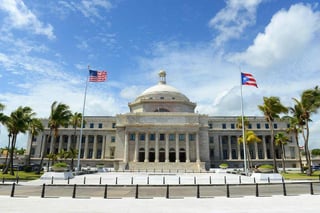Blog
See the latest content with helpful moving & storage posts and videos.
Moving to Puerto Rico: What you need to know
- Long Distance Moves
- Move Management

Moving to Puerto Rico is an interesting option for prospective movers for a variety of reasons: from climate and specific business opportunities to reduced tax rates.
A part of the U.S., but without the specific status of statehood, Puerto Rico offers an intriguing mix of the familiar and new. It's also a place that all U.S. citizens can move to without any government red tape or crossing of international boundaries.
Let's look at what it takes to move to this island and what to expect during the trip and once you arrive.

Learning more about Puerto Rico
Puerto Rico is, in technical terms, an unincorporated territory of the U.S. People born there are U.S. citizens and can move to any state they like - just as residents of U.S. states can move to Puerto Rico without any questions of citizenship or residency.
Having said that, Puerto Rico's status means it doesn't have active representation in the federal government. Residents of the archipelago - the territory of Puerto Rico includes the main island of the same name and several smaller islands - don't vote for U.S. senators, representatives or president. However, most residents don't pay a federal income tax, which is a major attraction for those considering a move. Of course, there is both an active territorial government and local taxes that need to be addressed.
Puerto Rico has a unique culture, a mix of indigenous, American and Spanish (Puerto Rico was occupied by Spain for more than 400 years) influences. The official languages are English and Spanish, although Spanish is significantly more common in most contexts.
While learning Spanish isn't an absolute necessity because many people are bilingual, as Living in Puerto Rico pointed out, some basic comprehension can make life in Puerto Rico more enriching. It's also important to note that, as is the case with many islands, costs for many types of food and other consumer goods are higher in Puerto Rico than on the mainland.
Puerto Rico is recovering from the extreme hardship inflicted upon it by Hurricane Maria in late 2017. While there's still progress to be made, the Caribbean island is shifting from short-term recovery to long-term rebuilding.
The island grows more stable as time goes on. A major consideration for those considering a move to Puerto Rico is the stability of their homes and the nature of their construction and location. A home that is built to be resilient in the face of extreme weather is a major asset in the face of increasingly powerful hurricane seasons.
Moving to Puerto Rico
Planning a move to Puerto Rico requires some additional planning and forethought. You won't have to worry about visas, permanent residency or similar jurisdictional concerns. However, there's a more basic, yet no less important, consideration to make: the time it takes to get your belongings from your current residence to your new home.
There's no way around having to ship these items over the Caribbean sea, and that process takes significantly longer than does an over-land move. For this reason, you may want to consider lightening the load for your move and purchasing new furniture, appliances and other bulky, heavy items after you arrive. This extends to your car, as Puerto Rico revealed pointed out.
You'll need experienced, capable and dependable movers and packers to help you make such a major move. Atlas is here to help you make this trip and keep your belongings safe as they move across land and water before reaching your new home in one of the country's very few island paradises.